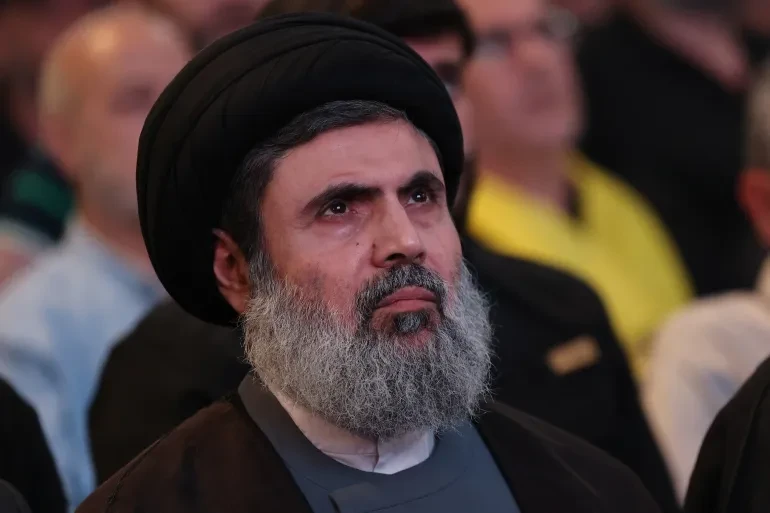Iran’s Plan to Strike Back Against the U.S.
Iran’s Military Preparations Following U.S. Attacks
Loading...

Hashem Safieddine was reportedly inside Hezbollah’s underground intelligence headquarters during an Israeli air strike.
A Critical Loss for Hezbollah
Hezbollah has reportedly lost contact with Hashem Safieddine, a senior leader and potential successor to the late Hassan Nasrallah, following an Israeli airstrike on Beirut's Dahiyeh neighborhood. This incident, which occurred on Friday, has raised significant concerns within the organization and among Lebanese officials about the future leadership of Hezbollah. According to a Lebanese security source, Safieddine was inside Hezbollah’s underground intelligence headquarters during the attack, which has left many questioning the implications of his disappearance.
Who is Hashem Safieddine?
As the chairman of Hezbollah's Executive Council, Safieddine holds a prominent position within the group. He is also a cousin of the former secretary-general, Hassan Nasrallah, who was killed in a previous Israeli airstrike last month. Al Jazeera's Dorsa Jabbari, reporting from Beirut, noted that there is a palpable sense of urgency among Lebanese and Hezbollah officials to allow rescue teams access to the area to recover bodies from the attack. The situation is particularly dire as Safieddine's potential succession of Nasrallah was seen as a stabilizing factor for the organization.
Implications of the Airstrike
The loss of contact with Safieddine raises serious questions about Hezbollah's internal security and intelligence capabilities. Political analyst Marwan Bishara pointed out that this incident indicates a significant intelligence breach within the group, suggesting that Israel has been able to locate and target key leaders effectively. Nader Hashemi, an associate professor of Middle East and Islamic Politics at Georgetown University, described the situation as a "serious and significant setback for Hezbollah." He speculated that the announcement of Safieddine's death may be forthcoming, as the wording used by Hezbollah suggests a preparation for such news.
Ongoing Israeli Military Operations
The Israeli military has confirmed that the airstrike targeted Hezbollah's intelligence headquarters, and they are currently assessing the aftermath of the attack. This airstrike is part of a broader campaign that Israel has launched against Hezbollah, which has intensified over the past two weeks. Following a year of cross-border exchanges that have displaced thousands of civilians, Israel is focusing on securing its northern border and targeting Hezbollah positions.
In recent developments, Israel has also conducted a "limited ground operation" in southern Lebanon, further escalating tensions in the region. Reports indicate that nine Israeli soldiers have been killed in ground clashes with Hezbollah fighters, highlighting the ongoing violence and instability.
Humanitarian Impact
The consequences of these military actions have been devastating for the civilian population in Lebanon. According to Lebanon’s Ministry of Public Health, over 2,000 people have been killed due to the intense bombardment, and approximately 1.2 million individuals have been forced to flee their homes. The humanitarian crisis continues to deepen as the conflict escalates, with many civilians caught in the crossfire.
Conclusion
The situation surrounding Hashem Safieddine's disappearance is emblematic of the broader challenges facing Hezbollah amid escalating Israeli military operations. As the organization grapples with the potential loss of its leadership, the implications for its future and the ongoing humanitarian crisis in Lebanon remain critical concerns for both local and international observers. The unfolding events will likely shape the dynamics of power within Hezbollah and influence the broader geopolitical landscape in the region.
Editor
Iran’s Military Preparations Following U.S. Attacks
Troops remain in five strategic locations, raising fears of renewed tensions and long-term occupation.
Opposition forces have taken control of the capital after a significant offensive. Here is how it unravelled.
